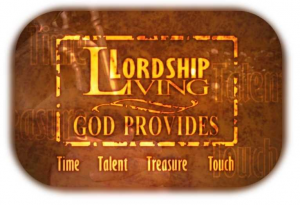Podcast: Play in new window
Subscribe: Android | Podcast Index | RSS
Lordship Living — God Provides
Sermon: How Am I Doing? — Trust
Speaker: Pastor Val Watkins
Scripture Text: Genesis 22:1-18
Duration: 28:36
Size: 13.0 MB
“What Would You Sacrifice?”
Have you ever sacrificed anything to help someone else? What did you give up? Did you miss it? Has anyone ever sacrificed anything to help you?
The Old Testament story of God’s command for Abraham to sacrifice his beloved son Isaac may cause us to wonder, “What was God thinking?” But the real issue wasn’t the survival of the boy, but rather the trust of Abraham—and whether he loved the Lord enough to obey Him—even when it involved the life of his precious child.
Today, let’s look at this amazing story and mine it for nuggets of truth to help us better understand how God works in this journey of Lordship Living.
How Am I Doing?
- If the story of Abraham and Isaac models any expectation God has for us, surely it is total reliance on God.
The God and Abraham Story
- Abraham passed God’s strange test of faith by living through the trial with a completely surrendered heart.
- Abraham’s total compliance to God proved his total reliance on God.
Clue Number One
- A surrendered heart is always ready to sacrifice regardless of the confusion.
- God was not after Isaac’s death; God was after Abraham’s life!
Clue Number Two
- A surrendered heart is always willing to worship regardless of the cost.
- Abraham was obliged both in duty and devotion, even with gratitude, to part with Isaac, because he was offering his beloved son to a trusted friend.
Clue Number Three
- A surrendered heart is always open to obedience regardless of the countermand.
- Abraham and his son traded their undeniable devastation for indescribable celebration.
Trust
- Partial obedience is perfect disobedience!
- Total reliance on God is total obedience to God!
God doesn’t want dead martyrs as much
as He desires living sacrifices.
Next week: Lasting Returns

